

There’s plenty of room in our elegant resume template to add your professional experience while impressing recruiters with a sleek design.
Like this template? Customize this resume and make it your own with the help of our Al-powered suggestions, accent colors, and modern fonts.
Writing a resume for an entry-level anything can be stressful—luckily, Michael had a pretty good idea of how to spin college and internship experiences in his favor. But how should he showcase his skills on paper and build a resume that would lead him toward a bright future?
A bit nervous, but excited to take on the challenge of landing an entry-level accounting job, Michael reviewed some resume tips while researching his next steps. He loved the idea of including a “Projects” section to really highlight his ambition and investment in learning more about his field. And boy, was he excited when he landed that start date!
If you’re eager to build your own success story, read on for more advice and entry-level resume examples to go with your AI cover letter!
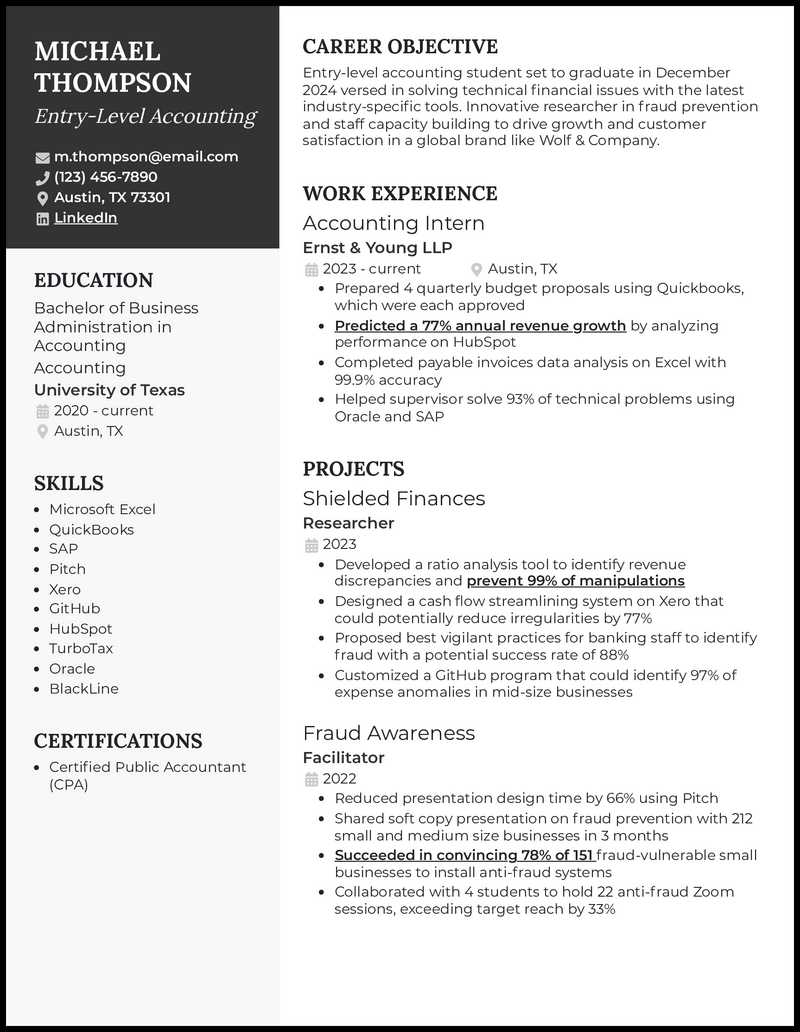
Learn how to
land a job
Get the free 4-day email course for college students and recent grads.
Get the course 
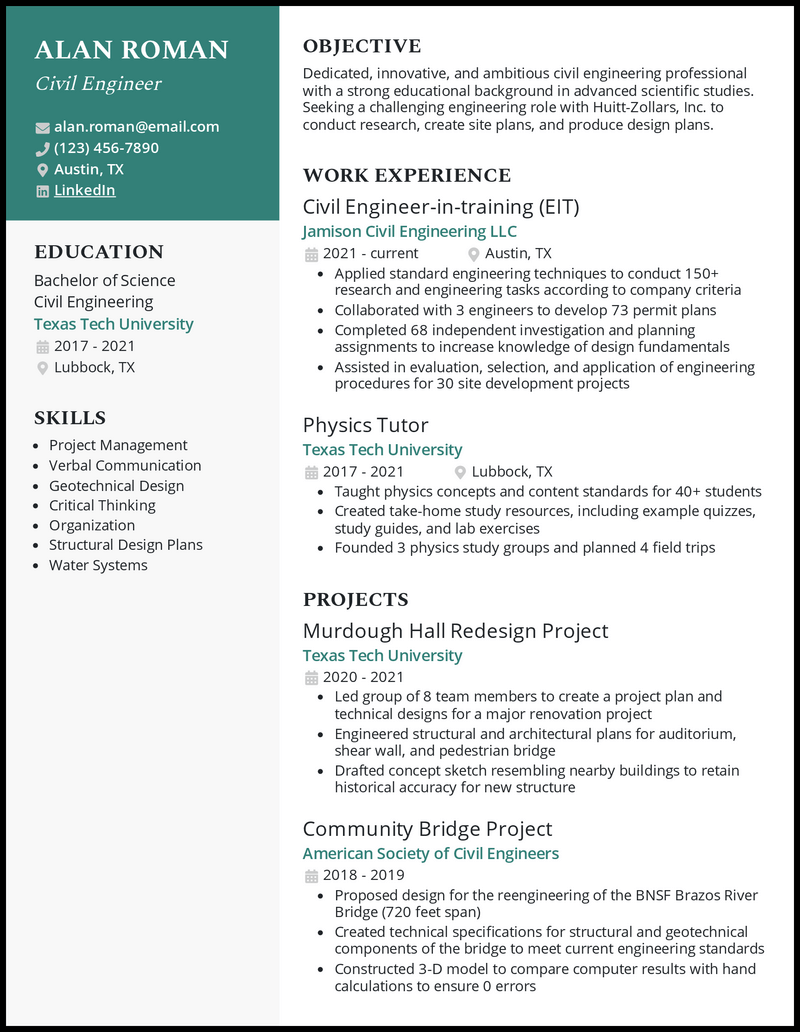
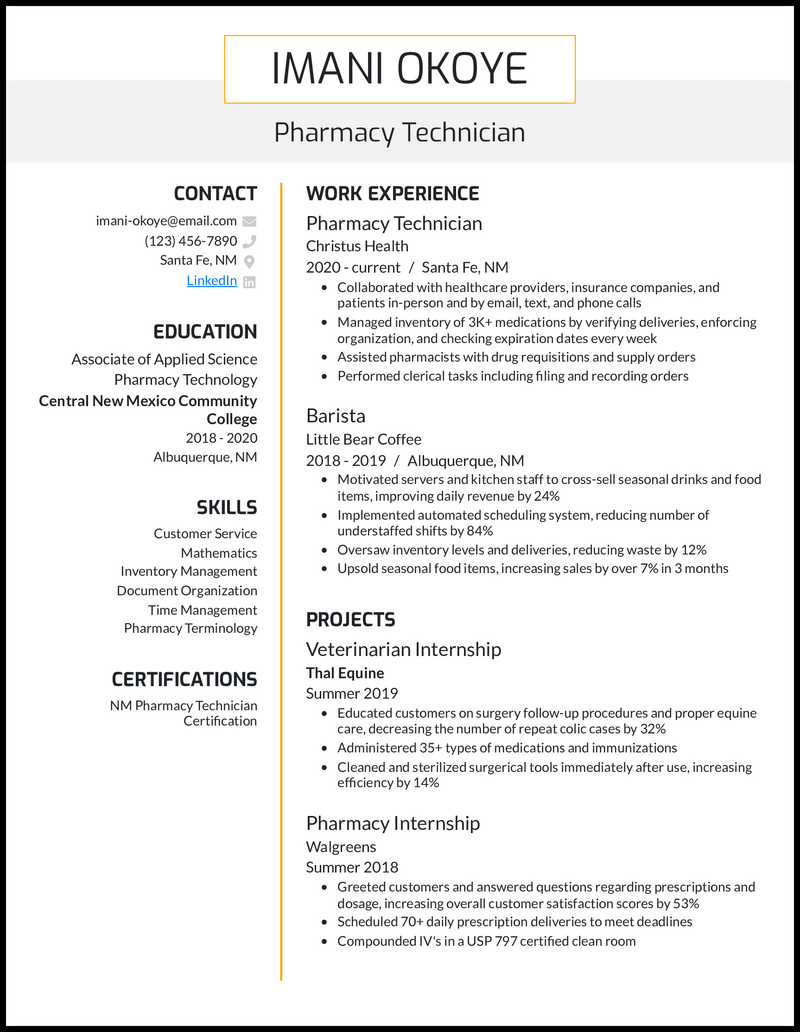


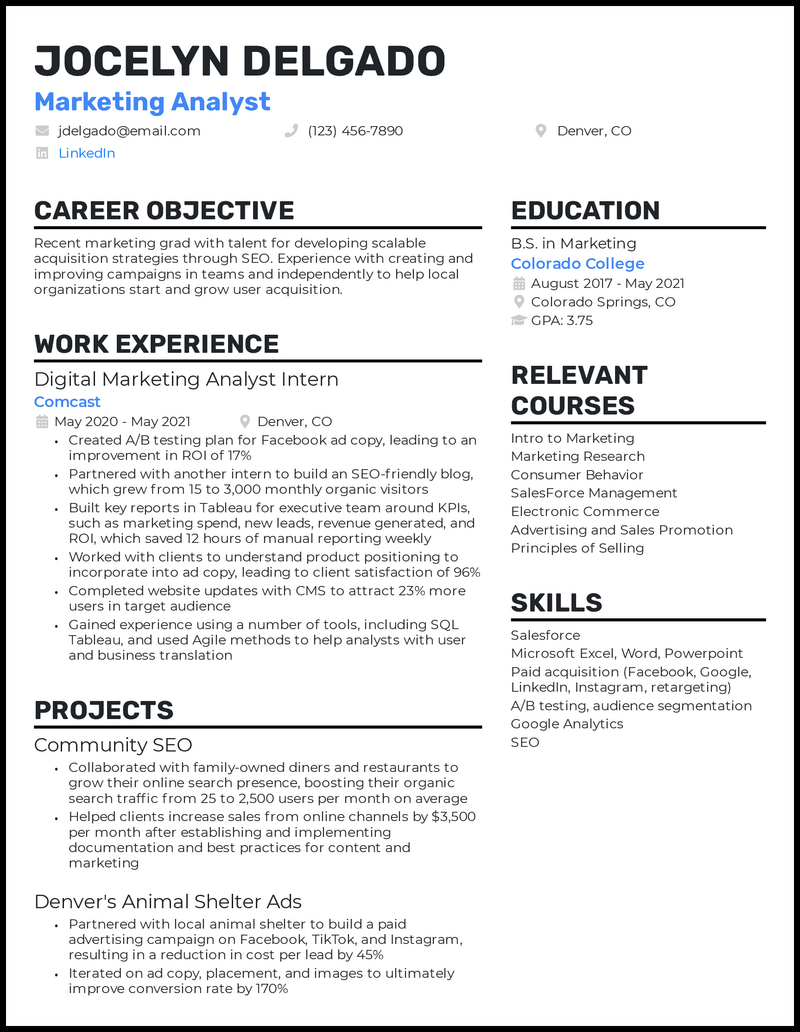
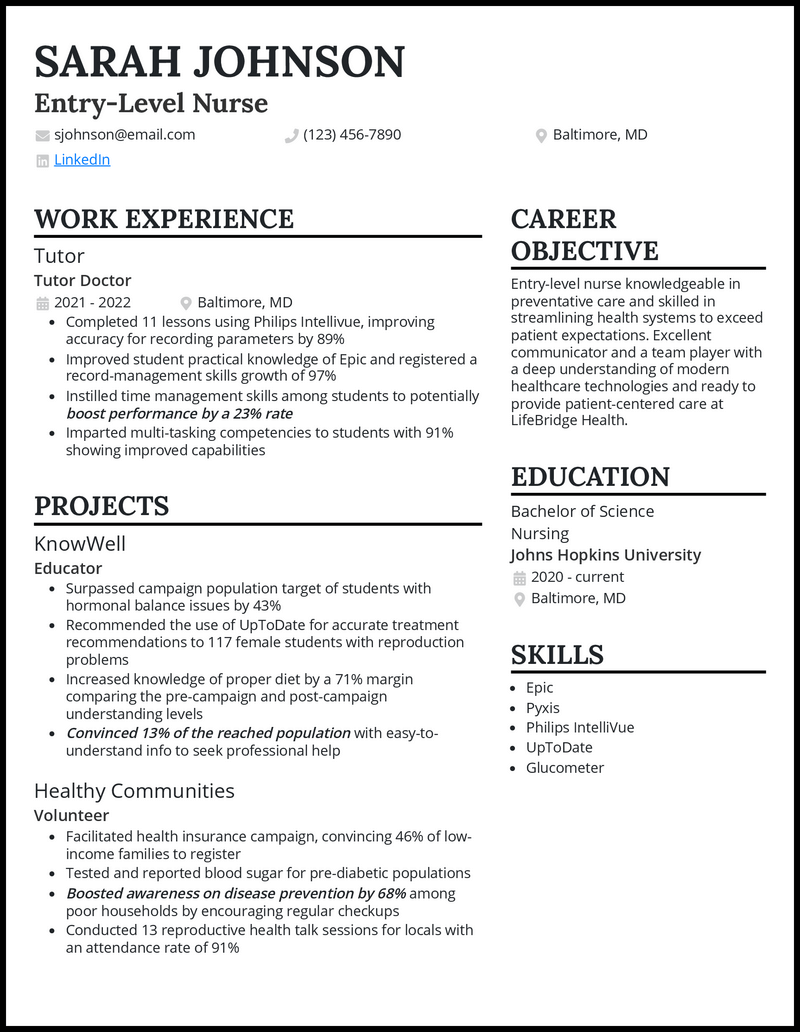

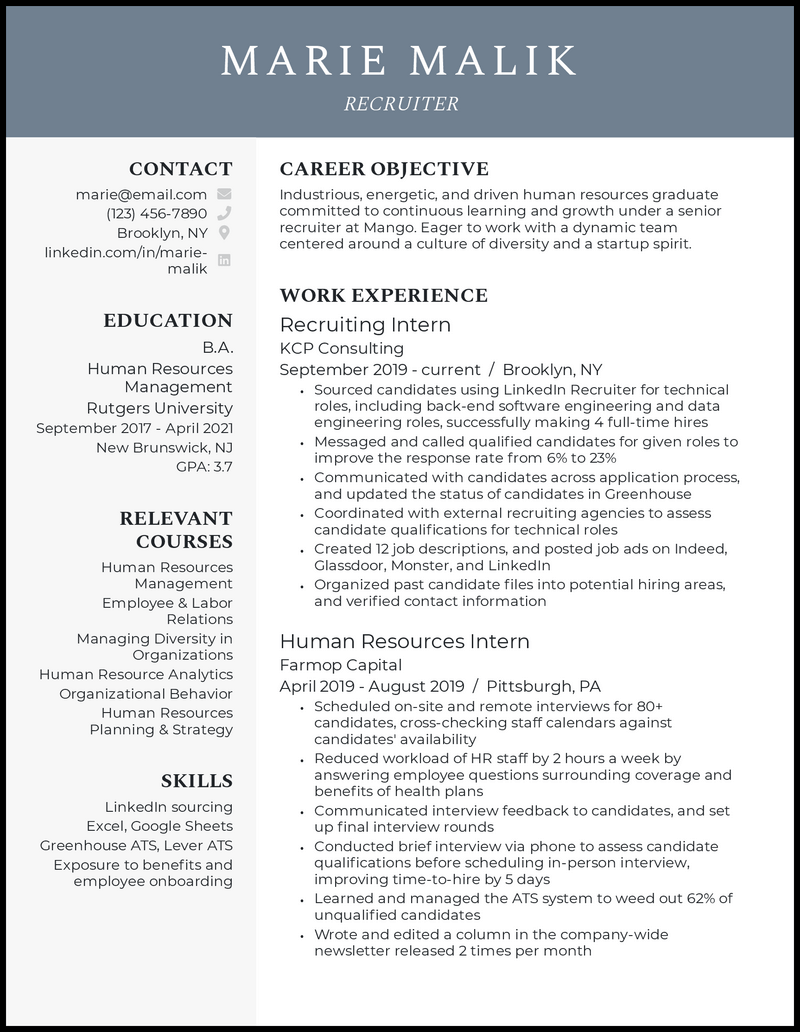
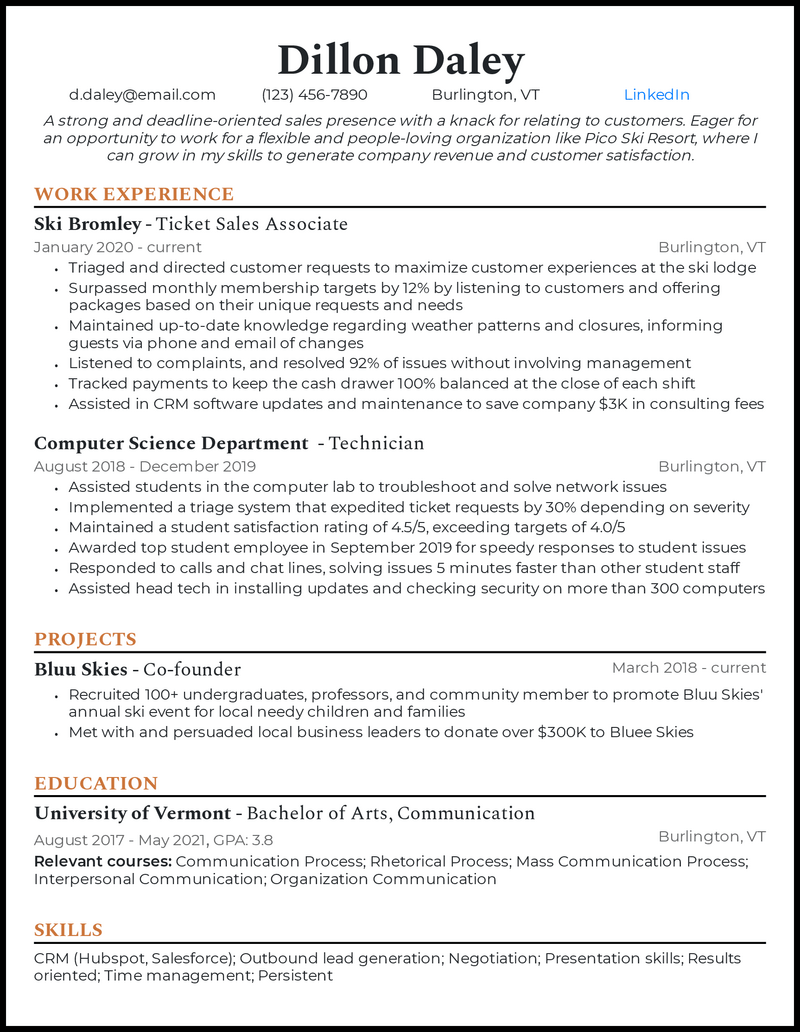


 Job seeker attaches job application materials to email on blue laptop" width="451" height="310" />
Job seeker attaches job application materials to email on blue laptop" width="451" height="310" />
There’s no silver bullet when it comes to resume templates. You can use nearly any template and make an effective entry-level resume. Just be sure to follow a few rules:
All of these rules are in service of one goal: make it as easy as possible for the person reviewing your resume to come away convinced that you deserve an interview for the role you’re applying to.
Stretching your resume to two pages or inserting big blocks of text goes directly against this goal.
Insert plenty of white space, avoid really small font, and use big headings.
![]()
Have you ever opened a book or article because the title was compelling just to read the introduction to be disappointed?
Think of the resume summary or resume objective as the introduction paragraph to your resume.
Before we dive into how to make an effective summary or objective, let’s get some definitions out of the way:
As you can imagine, a resume objective is more suitable for an entry-level candidate.
Keep in mind that, unlike an introduction for a book, a resume objective is not required for your resume.
In fact, 95 percent of entry-level resumes should omit a resume objective!
Why? Because most resume objectives don’t increase a candidate’s chances of getting an interview.
To ensure you write a resume objective in the top five percent of applicants, follow these rules:
I know, this seems like a lot to fit in two to three sentences. To help give you some inspiration, here are a few examples of effective entry-level resume objectives.
![]()
What on earth are you supposed to include on your entry-level resume when you don’t yet have relevant experience?
The answer, frankly, is anything that you can make seem relevant to the role you’re applying for.
I’m a firm believer that any work experience has skills that are transferable to other jobs.
Hiring managers understand that early in your career you may not have a ton of relevant industry experience to draw on.
That’s okay! Having a job, whether that’s a part-time summer job or an entirely unrelated full-time position demonstrates responsibility.
So don’t be hesitant to include any employment you’ve had in the past. Own it!
Still, there is another way to demonstrate to prospective employers that you’re qualified to do the entry-level job you’re applying to: projects.
These can be projects you did as part of a class or projects you undertook to satiate your own curiosity. Projects demonstrate a few things to employers:
Projects can truly be anything. To give you a better sense of that, here are some project ideas for different entry-level positions:
![]()
When it comes to the skills to include on your entry-level resume, it’s better to include a few skills you know very well than a laundry list of skills you kind of know.
Put yourself in the shoes of the hiring manager. Isn’t it a little suspicious for an entry-level candidate to be an expert in 10+ skills?
You should include your relevant skills in a dedicated “skills” section on your resume and also include the context in which you used those skills in a work experience or project.
It’s important to customize the skills that you include on your resume for each job you’re applying to because before a human reads your resume, an automated system called an Applicant Tracking System (ATS) will read it.
The ATS is checking whether or not your resume contains certain keywords mentioned in the job description. So it’s worth the time to customize your skills section for each entry-level role you’re applying to!